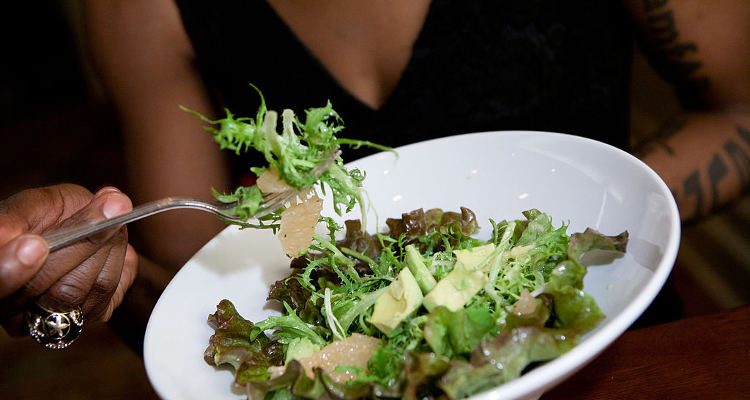
Fad diets pop up all the time. They offer quick fixes to get fit, lose weight, and reach optimal health. Now, most of them are based around some truth, but sometimes the tweaks and extreme guidelines make them unsustainable and inconvenient.
A diet that’s more and more common these days is veganism. It’s an eating practice where all animal products are eliminated from the diet and it is totally plant-based.
This means the foundation of the diet are vegetables, fruits, legumes, oils, and nuts. It differs from vegetarianism in the sense that vegans eat absolutely nothing that used to breathe, while vegetarians sometimes eat fish and egg products.
There is substantial evidence to support a number of benefits of a plant-based diet. It’s helped people lose weight, battle disease, and live a healthy life.
A highly regarded book called The China Study showcases the benefits of the vegan diet and offers plenty of evidence about how plant-based diets offer benefits that a meat-heavy diet can’t.
These include reduced cancer risk, substantial weight loss, and a sustainable diet. It is healthy and there is data to prove it. It won’t let you pack on muscle like Arnold Schwarzenegger, but do you really want to do that, anyways?
Of course, there are some people that like to take things a little further. Recently, there has been increased emphasis on the raw vegan diet.
This diet is almost the same as veganism, but there is one key difference: no food is cooked. It’s all raw or dried and nothing can be heated over 104 degrees Fahrenheit. The thinking is that cooking food kills valuable nutrients and eating raw foods is the healthiest way to eat.
These people, for the most part, are wrong. Although this diet will likely result in weight loss and is a healthy alternative to the typical American diet, it is largely unsustainable and many claims are false.
There is virtually no benefit to adopting a raw vegan diet as opposed to a regular vegan or vegetarian diet. In fact, berries are able to preserve more of their antioxidants the longer they’re cooked; and microwaving some foods, like broccoli, actually causes them to retain nutrients as well.
Raw veganism also creates challenges with regard to getting fresh food. For example, if you live somewhere where you have a cold winter, it’s tough to get a variety of fresh, local food and your options would be extremely limited, likely resulting in vitamin and nutrient deficiencies without heavy supplementation.
When it comes to dieting or healthy ways of eating, the best option is balance. If you want to cut out meat, that’s fine.
There is plenty of evidence that shows a vegetarian or vegan diet can be healthy and sustainable. But when something comes along with a lot of hype—like raw veganism—tread a little more lightly. There really isn’t any secret to nutrition.
It’s all about getting the right nutrients and vitamins you need, wherever they come from. In most cases, they are found in fresh, unprocessed food.













